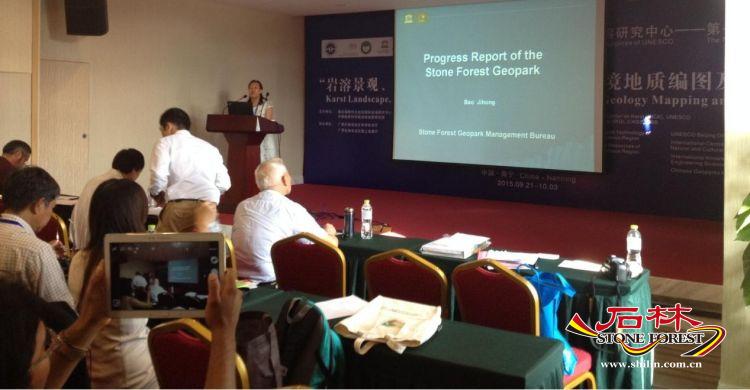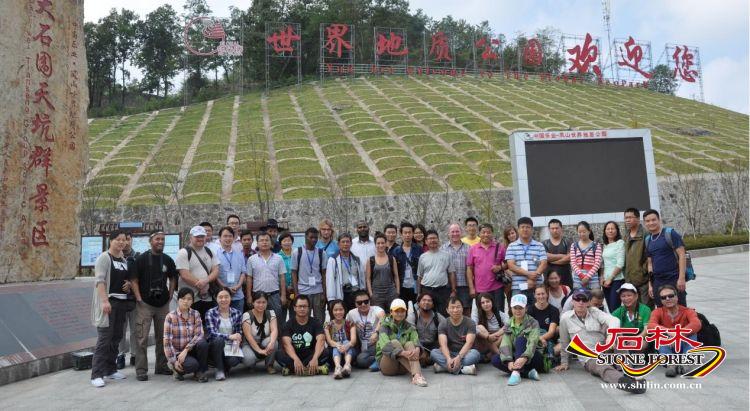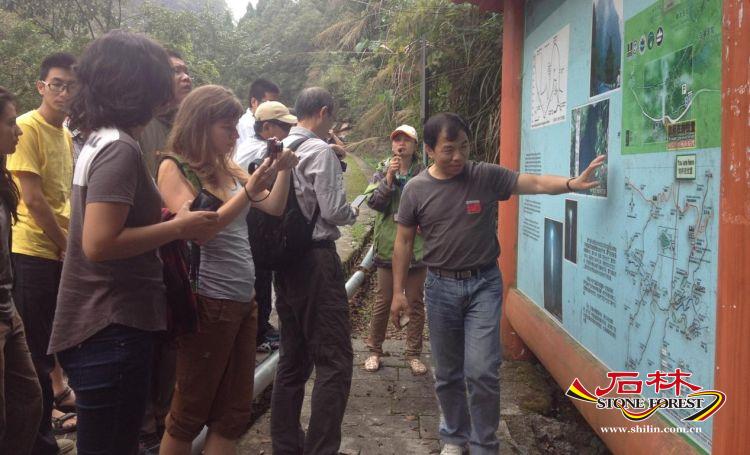- Geotourism Empowers Women in Shilin
- Shilin UGGp Established Sister Parks Relationship with Zigong UGGp
- The Sojourn in Villages A New Form of Cultural and Tourism Industry in Yunnan
- Participate in My Winter in Shilin Let Me Warm Your Hearts and Stomachs
- Fight for Glories in Stone Forest Opening of the 6th Field Archery Tournament in Shilin, Kunming
- The Representatives of the Shilin UGGp Participate in 8th International Training Course on UNESCO Global Geoparks Management and Development
- Chongqing Normal University Students Visit Shilin
Shilin Attends the 7th IRCK International Training Course
5 Oct 2015
Staff members of Shilin Global Geopark attended the 7th IRCK (the International Reserch Center on Karst) Training Course held in Nanning, Guangxi province from September 20th to October 4th 2015. Each training course has different themes, and for this year, the theme of the training course was “Karst Landscape, Geopark, Natural Heritage, Environmental Geology Mapping and Data Mining”, including the opening ceremony, presentations by Chinese and foreign lecturers, the field practice, the assessment of the trainees and the closing ceremony.

Shilin geopark staff was making a presentation at the training course
From 2009 till 2014, IRCK has organized 6 training courses about karst geology, one training course for each year. 2015 is the seventh year after the foundation of IRCK, and this training course is the seventh training course organized by IRCK. Chinese government sponsors the training course every year.

Group photo of the field excursion at Leye-Fengshan Geopark
The training courses had some special topics this year: functions and research methods of karst dynamics in the protection of karst landscapes, basic characteristics and protection of karst geoparks and natural heritages, typical cases and regulations of karst geoparks and natural heritages, methods and applications of karst environmental geology mapping, constructions of data platform and data mining.
Some experienced experts and specialists, from IKG, CAGS, HIST, IKCEST, UNESCO Beijing Office, Chinese Geoparks Network, the members of IRCK Governing Board and Academic Board, were invited to be lecturers for this course. The field work was conducted in the Leye-Fengshan Geopark, which are located in Guangxi Zhuang Autonomous Region.
Karst areas are not only rich in water, mineral deposits, oil and gas, and tourism resources, but also suffer from a series of particular environmental problems and natural disasters, including rock desertification, leakage of surface water and drought, flood, surface collapse. Many of the world's significant karst areas occur in poorly developed economic regions, in part due to the physical challenges that these landscapes often present with regard to water supply, agriculture, and urban development.
The main purpose of IRCK is to encourage international cooperation to increase understanding of karst water resources with regard to both ecological and human health concerns. The establishment of IRCK will actively contribute to Agenda 21 especially sustainable development of karst regions.

Field excursion at Leye-Fengshan Geopark
The main objectives of IRCK are to understand karst system in a world scale, to develop science and technology for sustainable development in karst regions, which is generally regarded as one of the most fragile environmental system of the world.
